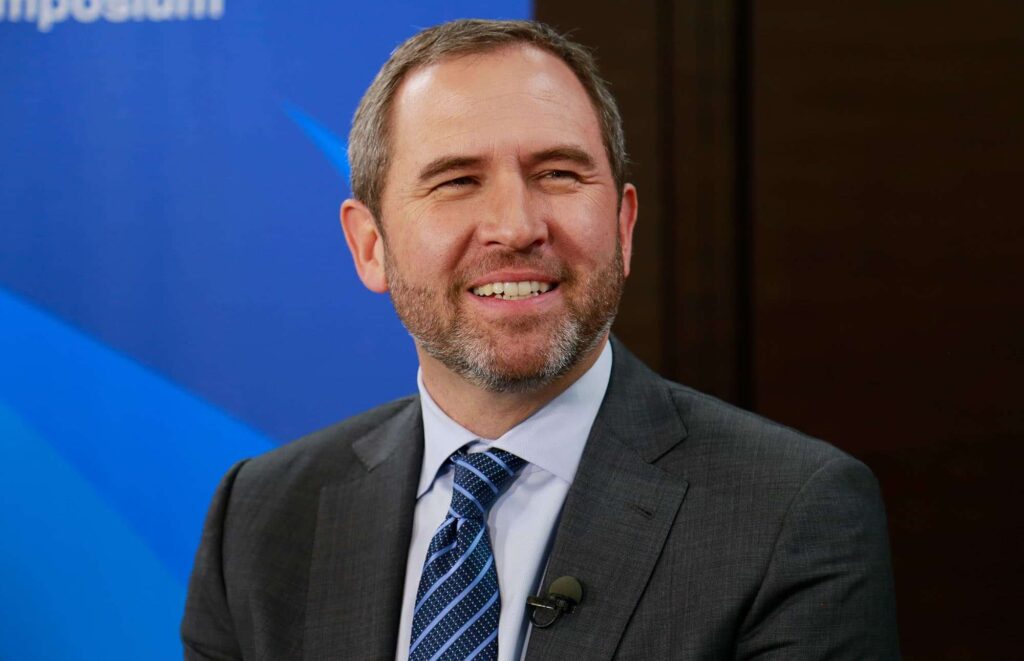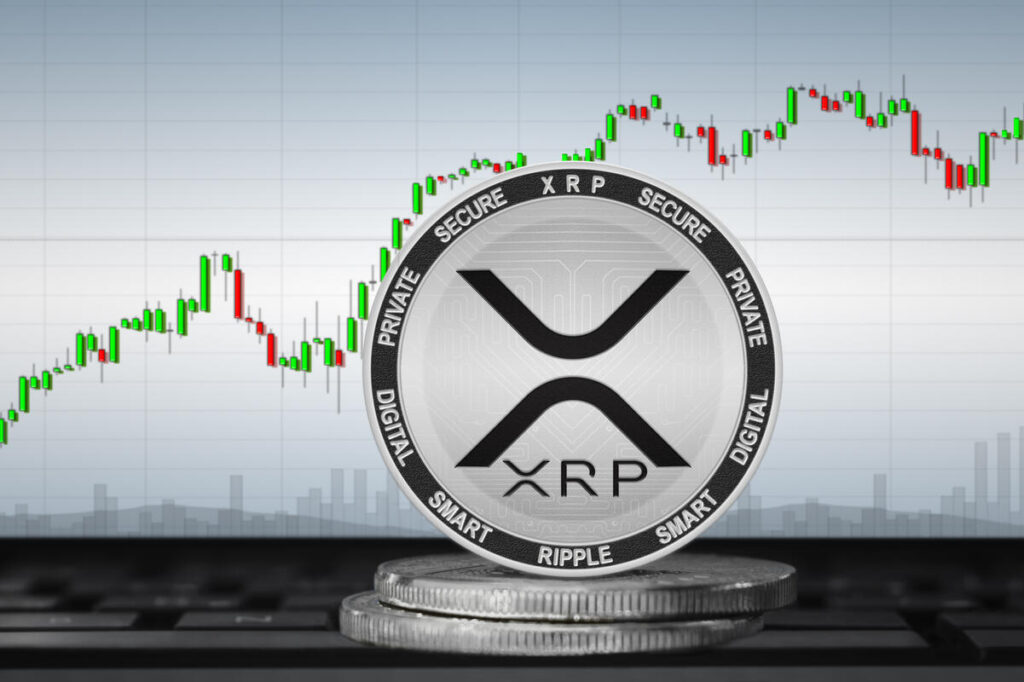Ripple Labs’ recent victory against the U.S. Securities and Exchange Commission (SEC) has been seen as a blow to the regulator’s efforts to regulate the crypto industry.
However, experts caution that this ruling may not be a definitive victory for the industry as a whole.
In a groundbreaking decision on July 13, U.S. district court Judge Analisa Torres ruled that XRP, Ripple’s cryptocurrency, is not a security when sold to the general public.
This ruling was met with excitement from XRP tokenholders and led to a significant surge in the token’s price.
Industry leaders, including those from crypto exchanges Coinbase and Binance, hailed the decision as a positive development for their ongoing lawsuits.
Luke Martin, the founder of crypto investment firm Venture Coinist, believes that this ruling deals a substantial blow to the SEC and its Chair, Gary Gensler.
He sees it as a positive sign for the industry and its fight against allegations of offering unregistered securities.
While many celebrated the ruling, several digital asset lawyers urge caution.
READ MORE: Elon Musk Launches xAI: A New Venture to Unravel the Mysteries of the Universe
They highlight that the summary judgment is only partial and does not establish a binding precedent.
It may serve as persuasive commentary for future courts but does not guarantee consistent rulings.
Furthermore, there is a possibility that the SEC may appeal the decision, and a higher court could overturn the ruling made by Judge Torres.
Despite these warnings, some experts believe that the SEC may face challenges if it decides to appeal.
Justin Slaughter, Paradigm policy director and former SEC adviser, suggests that the Supreme Court has recently been critical of government agencies and may not miss the opportunity to scrutinize the SEC’s actions.
Ripple still faces the SEC’s claim that its CEO, Brad Garlinghouse, and co-founder, Chris Larsen, “aided and abetted” the institutional sale of XRP.
The SEC alleges that $728 million worth of XRP was sold through institutional sales. This claim was set aside by Judge Torres and will likely be contested at trial.
In conclusion, while Ripple’s victory in the XRP case is seen as a setback for the SEC’s regulatory efforts, it is not a definitive win for the entire crypto industry.
The ruling may be subject to appeal, and future courts may not necessarily follow Judge Torres’ decision.
The legal battle between Ripple and the SEC is far from over, and there are still significant challenges to overcome.
Other Stories:
United States DoJ Moves $299 Million Worth of Bitcoin in Recent Transactions
Bitcoin ETF Approval Could Act as Government’s ‘Seal of Approval’
OpenAI, the creator of the AI chatbot ChatGPT and other related products, has reportedly received a criminal investigative demand (CID) from the Federal Trade Commission (FTC) of the United States, as reported by The Washington Post on July 13. A CID is akin to a subpoena, requiring the recipient to comply with the information requests.
The FTC is initiating an investigation into OpenAI’s potential use of “unfair or deceptive privacy or data security practices” and “unfair or deceptive practices relating to risks of harm to consumers, including reputational harm.”
The CID suggests that the agency is also contemplating the imposition of a monetary penalty if the alleged practices are deemed to be against the public interest.
The 20-page document contains 49 detailed questions and requests 17 categories of documents for the investigation.
READ MORE: Elon Musk Launches xAI: A New Venture to Unravel the Mysteries of the Universe
OpenAI has been given a 14-day deadline to contact an FTC counsel to discuss how it intends to address the demands put forth by the agency.
Among the inquiries posed by the FTC in the CID are questions regarding the specific large language models used in OpenAI’s products, their application, training methodologies, and mechanisms to ensure accuracy.
The document also touches on advertising policies, risk assessments, personal information collection and protection, determination of “public figure” status, and procedures for handling feedback and complaints.
The introduction of Microsoft-backed ChatGPT on November 30 caused significant ripples in the IT industry.
Its powerful capabilities prompted concerns about potential implications, and competitors hurried to keep up with the technology.
Unsurprisingly, this triggered a wave of investigations in numerous countries. A letter signed by 2,600 tech figures, including Elon Musk and Steve Wozniak, called for a moratorium on AI development.
OpenAI CEO Sam Altman also testified on AI safety before the United States Senate.
OpenAI has additionally faced legal challenges. In June, a class action lawsuit was filed in the Northern California District Court, accusing the company of unauthorized scraping of personal data from the internet.
Furthermore, popular authors Mona Awad and Paul Tremblay filed a copyright infringement suit against OpenAI, and comedian Sarah Silverman, along with two other authors, sued OpenAI and Meta the following month, alleging the use of illegal “shadow libraries” in training their AI.
It remains to be seen how OpenAI will navigate these investigations and legal proceedings, which have significant implications for the company and the broader AI industry.
Other Stories:
Bitcoin ETF Approval Could Act as Government’s ‘Seal of Approval’
United States DoJ Moves $299 Million Worth of Bitcoin in Recent Transactions
Worldcoin’s World ID project, which aims to provide a global digital identification protocol, has experienced significant success with over two million users signing up for the program.
Surpassing the first million mark in less than half the time, World ID is gaining traction in its beta testing phase.
The primary goal of World ID is to offer a digital passport stored on users’ mobile devices, enabling them to validate their identity while safeguarding their privacy through zero-knowledge proofs.
To enroll in the World ID program and obtain a digital passport, individuals are required to visit an “orb” where they scan one of their irises.
This process generates a unique identifier called “IrisHash,” which verifies their distinctiveness.
READ MORE: United States DoJ Moves $299 Million Worth of Bitcoin in Recent Transactions
Users who successfully upload their sensitive biometric data are rewarded with Worldcoin, the project’s native cryptocurrency.
Worldcoin attributes the surge in sign-ups to its recent multicity tour across Barcelona, Berlin, and Tokyo. During the tour, an average of 40,000 new verified World ID members were added each week.
The project anticipates that the availability of the five-pound, chrome eye-scanning devices, known as “Orbs,” will expand globally in the coming months due to increased demand.
Moreover, Worldcoin highlights the growing adoption of the World ID protocol by various apps and services. Notably, Okta’s Auth0 and Talent Protocol have integrated World ID and Worldcoin into their respective onboarding procedures.
On May 8, Worldcoin introduced the World App, a gas-free crypto wallet designed for verified individuals, compatible with Android and iOS operating systems.
Shortly thereafter, on May 25, the project secured $115 million in a Series C funding round to support the widespread implementation of its World ID program.
Worldcoin’s World ID project has successfully garnered substantial interest, as demonstrated by the significant number of users signing up for the program.
With the integration of the World ID protocol into various platforms and the development of the World App, Worldcoin is poised to continue expanding its influence and establishing itself as a prominent player in the digital identification and cryptocurrency space.
Other Stories:
Bitcoin ETF Approval Could Act as Government’s ‘Seal of Approval’
Elon Musk Launches xAI: A New Venture to Unravel the Mysteries of the Universe
Monochrome Asset Management, a crypto investment firm based in Australia, has made an update to its application, aiming to introduce a spot Bitcoin exchange-traded fund (ETF) on the Australian Securities Exchange (ASX) in collaboration with Vasco Trustees.
The newly proposed ETF, called the Monochrome Bitcoin ETF, will provide direct exposure to Bitcoin and Ether (ETH) for retail investors in Australia, as stated in the company’s announcement on July 14.
Monochrome CEO Jeff Yew explained in an interview with Cointelegraph that the Bitcoin ETF would allow Australian retail investors to engage with Bitcoin in a regulated environment, offering them the freedom to utilize this asset class as they see fit while operating within the established regulatory framework.
Yew emphasized the advantage of investor protection that comes with a regulated ETF, in contrast to unregulated exchanges where such safeguards may be lacking.
Yew further expressed his belief that the introduction of a Bitcoin ETF on the ASX would convey a significant message to traditional investors, signaling the end of the unregulated “Wild West” phase.
The ETF’s existence would assure investors of a familiar, structured, and protected environment, enhancing their confidence in the crypto market.
READ MORE: Bitcoin ETF Approval Could Act as Government’s ‘Seal of Approval’
Vasco, Monochrome’s “Responsible Entity Partner,” holds the necessary authorization under an Australian Financial Services Licence to offer regulated exposure to cryptocurrencies to retail investors, as outlined by the company.
Spot Bitcoin ETF applications have garnered considerable attention in the industry recently, particularly in the United States.
Over the past few weeks, major financial firms such as Fidelity, Invesco, Wisdom Tree, Valkyrie, and the $10 trillion asset management giant BlackRock have all submitted filings for spot Bitcoin ETFs, indicating growing interest in providing regulated exposure to digital assets.
The introduction of a Bitcoin ETF on the ASX through Monochrome Asset Management’s application update marks a significant step toward facilitating mainstream adoption and regulatory acceptance of cryptocurrencies in Australia.
Other Stories:
United States DoJ Moves $299 Million Worth of Bitcoin in Recent Transactions
Elon Musk Launches xAI: A New Venture to Unravel the Mysteries of the Universe
Binance’s BNB Beacon Chain Set to Halt New Block Production in Upcoming Hard Fork for Enhanced
In a significant court ruling, Ripple Labs emerged victorious as the United States District Court for the Southern District of New York declared that XRP, the digital token associated with Ripple, is not a security.
This decision has reignited the excitement and enthusiasm surrounding the Ripple ecosystem. However, with the surge in XRP’s value, Ripple’s Chief Technology Officer, David Schwartz, felt compelled to issue a warning to potential investors.
The legal battle between Ripple and the United States Securities and Exchange Commission, which had been ongoing for two years, took a notable turn on July 13.
The court’s ruling, which removed the “security” label from XRP, had an immediate impact on the token’s market price.
Within a single day, XRP experienced a remarkable rally, surging over 70% and elevating its value from $0.47 to $0.82.
READ MORE: Elon Musk Launches xAI: A New Venture to Unravel the Mysteries of the Universe
This spike represents the most significant price increase for XRP in the past year.
Such hype surrounding cryptocurrencies and crypto ecosystems often attracts the attention of scammers seeking to exploit unsuspecting investors.
Schwartz, therefore, took to Twitter to caution against the surge in XRP-related scams.
He emphasized that there were no airdrops, giveaways, or special offers associated with the recent court ruling.
Due to Ripple’s widespread popularity and growing community, scammers frequently mimic the official Ripple website to promote fraudulent giveaways and airdrops.
Their intention is to deceive victims and gain access to their crypto wallets, enabling them to steal funds either immediately or at a later time.
In a related incident back in April 2023, a prominent YouTube creator, DidYouKnowGaming, faced a hacking attack that resulted in the promotion of XRP scams on their channel.
The hackers were able to exploit YouTube’s platform and gain control over the account, which had approximately 2.4 million subscribers.
Fortunately, with swift action from YouTube, the channel owner regained access and recovered the deleted videos.
However, the precise method employed by the hackers to breach YouTube’s security remains unknown.
As the court ruling on XRP’s security status brings renewed attention and value to the token, it is crucial for investors to remain vigilant and exercise caution.
The cryptocurrency ecosystem has unfortunately become a target for scammers seeking to take advantage of unsuspecting individuals.
It is essential to verify the authenticity of any promotional offers and be wary of suspicious activities to ensure the safety of one’s investments.
Other Stories:
United States DoJ Moves $299 Million Worth of Bitcoin in Recent Transactions
Bitcoin ETF Approval Could Act as Government’s ‘Seal of Approval’
The CEO of Digitex, Adam Todd, has been ordered by a United States federal court to pay approximately $16 million in disgorgement and penalties as a result of a case brought by the Commodity Futures Trading Commission (CFTC).
In a recent announcement on June 12, the CFTC stated that a judge in the U.S. District Court for the Southern District of Florida issued a default judgment against Todd and several affiliated companies, namely Digitex LLC, Digitex Limited, Digitex Software Limited, and Blockster Holdings Limited Corporation.
The judgment was made due to their failure to register with the CFTC and their involvement in manipulating the price of the DGTX token.
As part of the judgment, Todd and the four companies are prohibited from participating in any CFTC-regulated markets.
Additionally, they are required to pay $3,912,220 in disgorgement and a civil monetary penalty amounting to $11,736,660.
READ MORE: Cathie Wood’s ARK Invest Takes Profits from Coinbase Holdings
Ian McGinley, the enforcement director of the CFTC, emphasized the commitment of the organization to ensuring the lawful registration of entities and addressing the manipulation of commodities in interstate commerce.
He stated, “Regardless of the technology used, the CFTC will aggressively use its well-established authority to ensure entities are lawfully registered and to address the manipulation of commodities in interstate commerce.”
According to McGinley, Todd allegedly employed a computerized bot to artificially inflate the price of DGTX. In 2020, Todd deployed this bot on third-party exchanges, resulting in the purchase of a larger quantity of the token than what was sold.
The charges against Todd and Digitex were filed by the commission in September 2022.
It is important to note that the $16 million order and any additional financial penalties imposed may not necessarily lead to repayment to Digitex users.
The CFTC, along with the U.S. Securities and Exchange Commission (SEC), is currently engaged in multiple civil suits against cryptocurrency firms and their executives for failing to comply with regulatory guidelines.
Among these cases are allegations against Binance, a popular cryptocurrency exchange, and civil charges against Sam Bankman-Fried, the former CEO of FTX.
The regulatory bodies are actively working to enforce compliance and maintain integrity in the crypto industry.
United States Senators Cynthia Lummis and Kirsten Gillibrand are set to reintroduce the Responsible Financial Innovation Act, a piece of legislation aimed at establishing a comprehensive regulatory framework for digital assets.
The bipartisan bill, which had been tabled in the previous session of Congress, will be reintroduced to the Senate on July 12.
The main objective of the Lummis-Gillibrand bill is to provide clarity on the roles of regulatory bodies such as the Securities and Exchange Commission (SEC) and Commodity Futures Trading Commission in overseeing digital assets.
Additionally, the legislation aims to enhance consumer protection measures within the digital asset space.
Originally introduced in June 2022, during a period marked by a significant crypto market crash, the bill seeks to address the aftermath of the market downturn.
It includes updates to the U.S. tax code that would allow the industry to finance its own oversight and implement safeguards to prevent events like the collapse of FTX, a crypto exchange that occurred after the bill’s initial introduction in November 2022.
READ MORE: Cathie Wood’s ARK Invest Takes Profits from Coinbase Holdings
The legislation was prompted by the collapse of Terraform Labs, a South Korea-based firm, which experienced the depegging of its algorithmic stablecoin from the U.S. dollar.
As a response, the bill will require payment stablecoins to be exclusively issued by depository institutions.
Critics of U.S. regulators have argued that there is a lack of clarity in the regulatory environment, which allows firms to operate without fear of enforcement actions.
The Lummis-Gillibrand bill has garnered praise for its bipartisan approach during a time when some elected officials have politicized certain aspects of the crypto space.
While the Responsible Financial Innovation Act represents one option, other legislators in the House of Representatives have proposed alternative legislation to address the regulatory framework for cryptocurrencies.
A discussion draft released in June suggests limiting the SEC’s authority over crypto firms, while the House Financial Services Committee has drafted legislation proposing that the Federal Reserve become the primary regulator responsible for establishing stablecoin requirements.
Overall, the reintroduction of the Responsible Financial Innovation Act reflects ongoing efforts by U.S. lawmakers to develop a comprehensive and balanced regulatory framework for digital assets, with the aim of protecting consumers and promoting innovation within the industry.
Dapper Labs has recently announced its third round of staff layoffs within a span of less than a year.
On July 13, CEO Roham Gharegozlou revealed that the company had to bid farewell to 51 of its talented employees and referred to them as “brilliant colleagues and friends.”
This latest round of cuts affected both full-time staff members and C1 contractors.
Gharegozlou acknowledged the difficulty of this decision, particularly due to the exceptional individuals impacted by it.
However, he emphasized the necessity of the cuts to ensure the company’s efficiency and streamlined operations. Despite the layoffs, Gharegozlou assured that Dapper Labs and its blockchain platform, Flow, remained in a strong financial position.
He expressed confidence in the restructuring, stating that it would enable the company to serve its fans better and foster healthy growth within its communities.
READ MORE: President Xi Jinping Highlights CBDCs and Expansion of SCO
The reduction in staff represents approximately 12% of Dapper Labs’ workforce, according to employee data from Growjo.com.
This downsizing marks the third occurrence in less than a year, following a 22% cut in November 2022 and a 20% reduction in February 2023.
Inquiries were made to Dapper Labs by Cointelegraph for additional comments regarding the layoffs, but a response was not received at the time of publication.
Dapper Labs gained recognition for its development of popular NFT collectibles, including CryptoKitties and NBA Top Shot.
This move to downsize the staff comes amidst a broader decline in NFT markets and trading. In April, Cointelegraph reported on the market’s imbalance, with sellers dominating the scene.
Additionally, many prominent NFT collections experienced substantial decreases in floor prices over the past few months.
Clegainz, a commentator specializing in sports and NFTs, stated that the layoffs were not a surprising development, considering the current state of Web3 and the overall macroeconomic environment.
They further noted that Dapper Labs is not alone in facing these challenges, as numerous other Web3 companies are in similar situations at present.
The United States Department of Justice (DOJ) has reportedly conducted a series of transactions involving a cryptocurrency wallet associated with them, moving approximately 9,825.25 Bitcoin worth around $299 million on July 12.
The purpose of these transactions and the current whereabouts of the Bitcoin remain unclear.
Initially, around 9,825 Bitcoin associated with the Silk Road seizure were sent in two transactions to three addresses at approximately 1:00 pm UTC.
The majority of these coins, equivalent to 8,200 BTC worth nearly $250 million, were transferred to a single address.
Subsequently, this address split the total amount across 101 separate addresses a little over an hour later.
READ MORE: United States Government Accountability Office Publishes Blockchain Report
The U.S. government had previously announced its plans to sell the remaining Bitcoin from the Silk Road seizure in four batches throughout the year.
It is speculated that the recent transactions may be part of the government’s liquidity testing strategies. On March 7, 2023, one account involved in the batch transactions reportedly made a profit of $237,934,919 from BTC holdings not associated with the July 12 transactions.
However, another account that received 9,825.6 BTC from the DOJ during the March 7 batch distributed the coins among 101 accounts.
Subsequently, this account, along with 599 others, sent approximately 0.1 BTC (about $3,032) to yet another account, which then divided its holdings of approximately 51 BTC across 37 addresses.
The exact nature and purpose of these transactions have sparked speculation within the crypto community.
With over 800 wallet addresses involved, it has become increasingly challenging to track the U.S. government’s intentions with each coin.
This uncertainty has led some to fear that the Bitcoin market may be negatively impacted or that it could disrupt the ongoing bull run in the cryptocurrency economy, prompting investors to abandon their positions.
However, others dismiss these concerns as unnecessary fear, uncertainty, and doubt.
Despite the significant number of transactions, the market movement of BTC remained relatively stable, with less than 1% change in value over six hours after the transactions were conducted.
As the situation continues to unfold, the crypto community awaits further information regarding the DOJ’s actions and their potential impact on the cryptocurrency market.
Elon Musk, the prominent American business magnate, has recently launched an innovative company called “xAI” with a bold objective: to comprehend “the true nature of the universe.”
In an announcement made on July 12, xAI revealed its intention to collaborate closely with Twitter, Tesla, and other enterprises under Musk’s ownership to advance its mission.
The company is actively seeking experienced engineers and researchers in the San Francisco Bay area to join its technical team. Notably, Dan Hendrycks, the director of the Center for AI Safety, has been enlisted as an advisor to xAI.
The developers associated with xAI boast an impressive track record, having previously worked at esteemed institutions such as DeepMind, OpenAI, Google Research, Microsoft Research, Tesla, and the University of Toronto.
They have collectively made substantial contributions to the field, including the development of widely utilized methods like the Adam optimizer, Batch Normalization, Layer Normalization, and the discovery of adversarial examples.
READ MORE: President Xi Jinping Highlights CBDCs and Expansion of SCO
Moreover, the xAI team has played a pivotal role in groundbreaking projects such as AlphaStar, AlphaCode, Inception, Minerva, GPT-3.5, and GPT-4. To engage with the public and foster discussion, xAI has scheduled a Twitter Space chat for July 14.
In a previous report by Cointelegraph on April 17, it was revealed that Musk is also working on a competitor to ChatGPT called “TruthGPT.”
This large language model is being developed to explore the “mysteries of the universe.”
Musk claims that TruthGPT aims to counter the perceived “left-wing” bias prevalent in the industry, alleging that ChatGPT is programmed by experts who lean towards the left and, therefore, train the chatbots to deceive.
Musk has been vocal about the need for increased regulatory oversight of artificial intelligence (AI).
On July 6, he expressed concerns that AI technology may eventually surpass human intelligence in all domains.
He also emphasized the transformative impact of AI-powered devices such as autonomous cars and robots, stating that they will bring about profound changes in society.
With the launch of xAI and the ongoing development of TruthGPT, Elon Musk continues to make significant strides in the realms of artificial intelligence and technological innovation.
As these ventures progress, the industry eagerly anticipates the potential breakthroughs and advancements they may bring forth.












